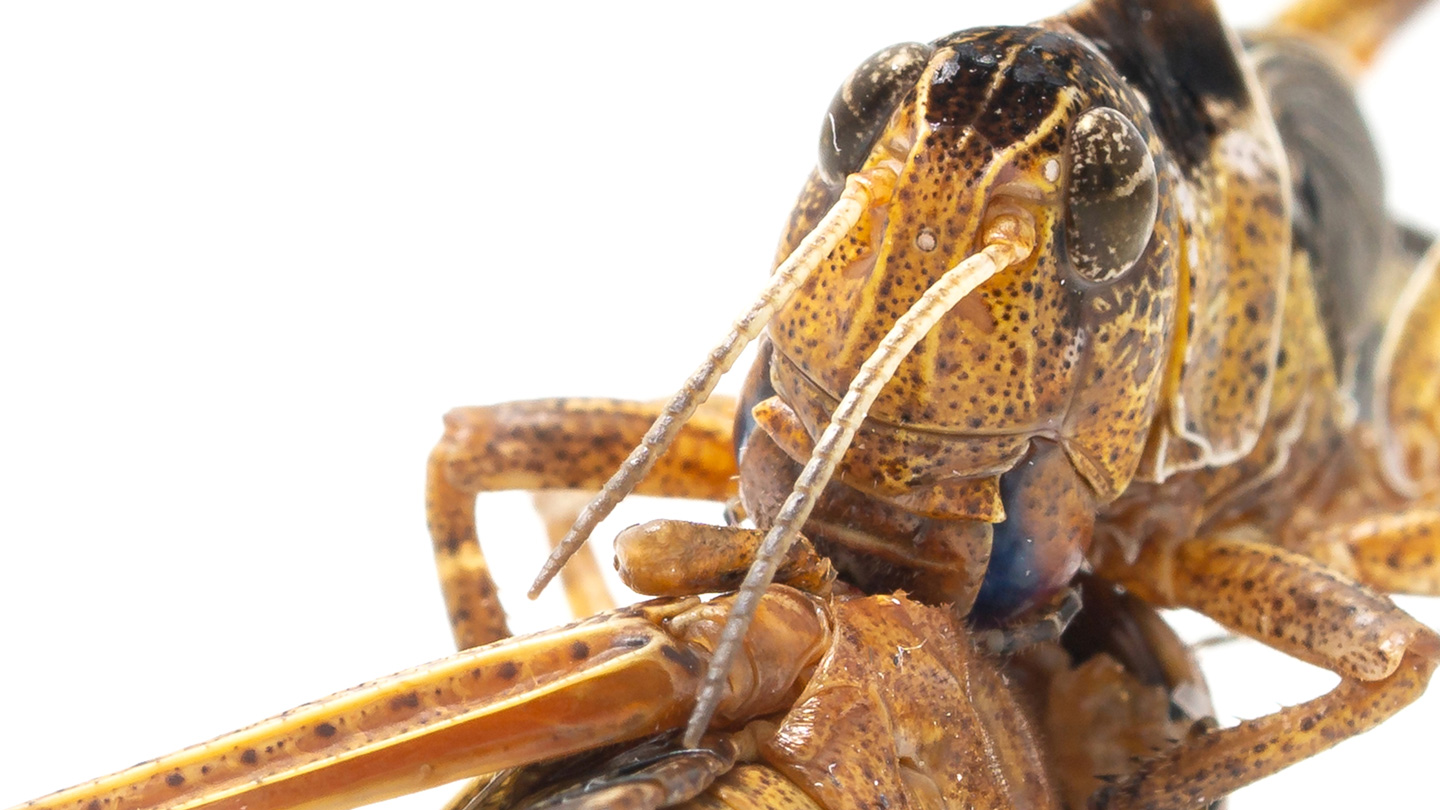According to a recent study, some migrating locusts use a “don’t-eat-me” pheromone to deter their cannibalistic companions. In crowded conditions, cannibalism is a common behavior for locusts, but this pheromone can help maintain a balance. Bill Hansson, a neuroethologist at the Max Planck Institute for Chemical Ecology in Jena, Germany, explains that the level of cannibalism in a swarm depends on how hungry the locusts are and how badly they smell. When food is scarce, L. migratoria locusts switch to a gregarious lifestyle, becoming more attracted to each other and engaging in cannibalism to survive longer while searching for more nutrients. Some research suggests that cannibalism may actually underpin locust swarming behavior, as individuals move en masse to avoid being attacked from the rear. This behavior is common in the animal kingdom and is typically a convenient way for animals to supplement their diet when food is scarce. This post was originally published on www.sciencenews.org on 2023-05-04 13:00:00.
Locusts in swarms can release a chemical to prevent cannibalism.
